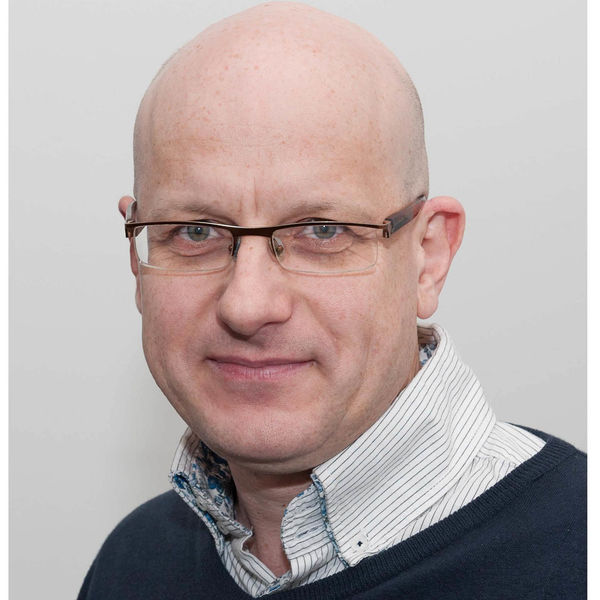
January - September 2016
Mail gkrzywiec(at)wp(dot)pl
Grzegorz Krzywiec is adjunct professor at the Institute of History, Polish Academy of Sciences (Polska Akademia Nauk, PAN). His fellowships include: Vrije Universitet Brusels, Brussels; Bronisław Geremek Fellowship, Institut fűr die Wissenschaften vom Menschen (Vienna); and Tel Aviv University, Tel Aviv. Krzywiec has largely published on Polish anti-Semitism, Polish-Jewish relations, and on the right-wing in Poland in the Central and East European context. He is currently completing a book on modern Polish anti-Semitism in the Central and East European context (1905-1914).
East Central European Fascism, the Polish Style: Ethnic Homogeneity, Native Modernity and the Paths to Christian National Community in Comparative and Transnational Perspective. Historians, and social scientists in general, typically ignore the Polish contribution to the legacy of fascism in the broader region of East Central Europe. My project aims to make a revision to this paradigm, and thus challenge the presumptions of marginality and of the imitative character of the Polish fascist movement. Moreover, I will argue that Polish fascist groups were not only similarly influential, as in Romania and Hungary, but also paradoxically shaped the Polish politics of the late 1930s, even though 'a fascist regime from above' (specifically appropriate to the Polish context) was in power in Poland for only a few years (1936-1939).
A point of departure for my considerations is an early form of Polish mass fascist organization (ca. 200,000 members), the Camp of Great Poland (Obóz Wielkiej Polski) established as a nationalist answer to Józef Piłsudski's coup d'état (1926) and likely the biggest fascist movement in the region. On practical terms, the Camp did not achieve much, having been outlawed in 1933 by the Piłsudski regime. Nevertheless, as it expanded, this early version of Polish fascism revealed its social, political and ideological physiognomy. My project deals with the cultural legacy and the paradoxical afterlife of this phenomenon.
In my project, fascism in its Polish version is seen as a toxic fusion of different strands of racial and ethnic elitism, paramilitary politics, 'Christian' anti-liberal demagogy, and first and foremost, radical anti-Semitism ingrained in popular emotions and imaginations. Ultimately, though I assume that Polish fascism had one overriding goal to make a new and powerful nation-state that would dominate the region in opposition both to Nazi Germany and Soviet Russia, it also had some original influence on the other Eastern European rightist radicalisms of the time.
My research project tries to rethink a couple of old, almost everlasting questions. Where were its intellectual roots -- only in Italy and eventually in Germany as it has usually been argued? What was the role of a generational shift in the Eastern European politics of the mid-1930s? Were its social, economic, and cultural aims (whether essentially national, or at least transnational) revolutionary or counter-revolutionary; or both? Another particular aim of my research is to see the Polish case in a broader European and international context. Inasmuch as there are still a plethora of mystifying and taboo questions about nature of this phenomenon whether in Eastern Europe or in Poland in particular, a new conceptualization and the broader cross-national approach seems to be an urgent necessity for research of the problem.
Grzegorz Krzywiec, Chauvinism, Polish Style: The Case of Roman Dmowski (1886-1905), translated by Jarosław Garliński, Frankfurt/New York: Peter Lang, 2016.
Grzegorz Krzywiec, Szowinizm po polsku: Przypadek Romana Dmowskiego (1886-1905), Warszawa: Neriton, 2009.
Co-Editor Joanna Nalewajko-Kulikov, Grzegorz Krzywiec, Ruth Leiserowitz, Stephan Lehnstaedt, ed., Lesestunde / Lekcja czytania, Warszawa: Deutsches Historisches Institut Warschau, Instytut Historii PAN, Wydawnictwo Neriton, 2013.
P. Kuciński and G. Krzywiec, ed., Analizować nienawiść: Dyskurs antysemicki jako tekstowe wyzwanie, Warszawa: IBL, 2012.
Grzegorz Krzywiec, Kampania wyborcza Romana Dmowskiego do IV Dumy Państwowej w Warszawie w 1912r: Przyczynek do studiów nad mobilizacją nacjonalistyczną, Kwartalnik Historii Żydów 1, no. 253 (2015): 22-52.
Grzegorz Krzywiec, Fascism in Eastern Europe, Україна Модерна, vol. 20 (2013): 14-17.
Grzegorz Krzywiec, Crusade for a Numerus Clausus in 1922-1923: Preliminaries of Polish Fascism in the Central and East European Context, in Alma Mater Antisemitica: Akademisches Milieu, Juden und Antisemitismus an den Universitäten Europas zwischen 1918 und 1939 edited by Regina Fritz, Grzegorz Rossoliński-Liebe and Jan Starek, Wien: New Academic Press, 2016, pp. 65-82.
Grzegorz Krzywiec, Some Projects of Anti-Jewish Legislation in the Interwar Poland, in Anti-Semitic Legislation in Slovakia and in Europe, edited by M. Fiamova, Bratislava: Ustav Pamati Naroda, 2014, pp. 125-139.
Grzegorz Krzywiec, Eliminationist anti-Semitism at home and abroad: Polish nationalism, the Jewish question, and Eastern European right-wing mass politics in The New Nationalism and World War I, edited by Larry Rosenthal and Vesna Rodic, London: Palgrave Macmillan, 2014, pp. 65-94.
Grzegorz Krzywiec, Between Realpolitik and Redemption: Roman Dmowski's solution to the Jewish Question in Antisemitism in an Era of Transition: Genealogies and Impact in Post-Communist Poland and Hungary, edited by François Guesnet and Gwen Jones, New York: Peter Lang, 2014, pp. 69-90.
Grzegorz Krzywiec, Redemptive anti-Semitism in Polish political tradition: The Case of Roman Dmowski in היסטוריה מתנגשת וקיום משותף: פרספקטיבות חדשות על המפגש היהודי פולני (Conflicting Histories and Coexistence: New perspectives on the Polish-Jewish encounter), edited by Daniel Blatman, Jerusalem: The Hebrew University Magnes Press, 2014, pp. 241-260.
Grzegorz Krzywiec, "Progressiver Antisemitismus" im russischen Teil Polens von 1905 bis 1914: Ursprünge und Konzepte des polnischen politischen Antisemitismus, in Die "Judenfrage" - ein Europäisches Phänomen? Edited by Manfred Hettling, Michael G. Müller, and Guido Hausmann, Berlin: Metropol, 2013, pp. 127-142.
Review Article: "O konsekwencjach II wojny światowej i zagłady Żydów dla stosunków polsko-żydowskich. Nowe ujęcia", Studia Judaica, vol. 16, (2), (2014): 187-203.
Reivew Article: "O klerykalnym faszyzmie po latach. Na marginesie Curriculum vitae Jędrzeja Giertycha", Zagłada Żydów. Studia i Materiały, no. 9, (2013): 279-292.
"Review Article: Globalne tezy, lokalne przemilczenia", Studia Litteraria Historica, (no 1, 2012) www.slh.edu.pl/content/globalne-tezy-lokalne-przemilczenia - Review Article "Realia, dyskursy, portrety" Teksty Drugie, no. 5 (2012): 135-139.
Review Article of: "(Marek J. Chodakiewicz, Wojciech J. Muszyński, Złote serca czy złote żniwa. Studia nad wojennymi losami Polaków i Żydów)", Zagłada Żydów. Studia i Materiały, no. 7, (2011) p.643-656.